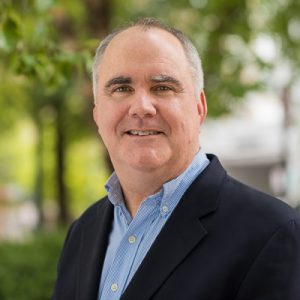Scientific Integrity Is Not a Popularity Contest
 In government service, scientists who formally file dissenting opinions do so at the risk of their careers. They are challenging the orthodoxy of their agency, often on issues fraught with heavy political overtones. It is usually a lonely journey, straining marriages, and even the dissenter’s own mental health.
In government service, scientists who formally file dissenting opinions do so at the risk of their careers. They are challenging the orthodoxy of their agency, often on issues fraught with heavy political overtones. It is usually a lonely journey, straining marriages, and even the dissenter’s own mental health.
In some instances, agencies will try to counter dissent by employing a perverse “majority rule” in which the dissenter is outvoted by their colleagues. These fabricated consensuses are meant to marginalize the dissenter and typically obscure rather than clarify matters. These tactics test the underlying integrity of both the individual and the institution.
So, it was curious that the Union of Concerned Scientists (UCS) recently unveiled the results of a survey of scientists working in six federal agencies under the suggestive title “Getting Science Back on Track.” While not surprising that federal scientists generally feel better about the White House today than under Trump, the survey results for scientists working in EPA, CDC, Fish & Wildlife Service, FDA, NOAA, and USDA are hardly rosy.
Buried in the methodology section is the revelation that the rate of return on this survey was less than 4% — only 1,828 scientists responded to the survey that UCS sent to 46,616 potential respondents. It is hard to see this small, self-selected response as truly representative.
It is also far lower than the rate of return in official surveys, and it is lower that PEER has ever received on the more than 30 staff surveys that we have conducted in federal, state, and local agencies over the past 25 years.
Perhaps one reason the rate of return was so low is that the survey was sent to government email addresses. This puts perhaps already nervous federal employees in the uncomfortable position of having to use government equipment for this unofficial purpose. Moreover, one’s government email account can be a risky channel for voicing dissent. Unsurprisingly, the vast majority of recipients simply deleted it. Again, by contrast, all PEER surveys are sent and returned via U.S. mail so as to be untraceable.
More significantly, what those responding scientists actually said in the UCS survey was sobering. For example, look at the response to this statement:
“I have been asked or told to omit certain words in my scientific work products because they are politically contentious.”
In the fall of 2022, nearly halfway through the Biden term when the survey was conducted, more than one-third of CDC scientists (36%), nearly a third of EPA scientists (31%) and one-quarter of FDA and FWS scientists (25%) who responded to the UCS survey said yes.
Think about that. That is hardly an indication that scientific integrity is “back on track.”
Further, in looking at the UCS survey results for EPA scientists –
- More than a third (37%) of respondents did not feel or declined to say whether they “can openly express concerns about the mission-driven work of the agency without fear of retaliation.” and
- Only a bare majority (51%) perceived “an increase in the effectiveness of the office/division they worked in, up substantially from under the Trump administration.”
These are not rousing endorsements. Again, while these were better numbers than in the 2018 UCS survey under Trump, that is setting the bar awfully low.
Disturbingly, UCS appears to be acting as a cheerleader for the Biden administration on scientific integrity issues. In January, UCS issued a glowing review of the White House Model Scientific Integrity Policy on the day it was issued. This tribute glossed over that the Model Policy is very weak, leaving big gaps, and even imposing a bizarre gag rule that could bar scientists from saying or writing anything with policy ramifications. In fact, some university scientists feel this gag rule is so broad that, if enacted, it could prevent them from working for federal agencies.
Moreover, every week we still see scientists or technical specialists whose work is being watered down or obstructed due to political considerations. It will take much stronger medicine than the proposed White House Model to fundamentally change the dynamic within the bureaucracies to achieve a culture of scientific integrity.
Undoubtedly, some progress has been made in the past few decades on ensuring the integrity of government science. It is also encouraging that President Biden’s January 2021 directive on the topic was premised on the recognition that the Obama policies had not worked. Nonetheless, it is way too early to be bringing out the champagne glasses.
 Tim Whitehouse is the Executive Director of PEER. Among other things, Tim formerly served as an EPA enforcement attorney.
Tim Whitehouse is the Executive Director of PEER. Among other things, Tim formerly served as an EPA enforcement attorney.
